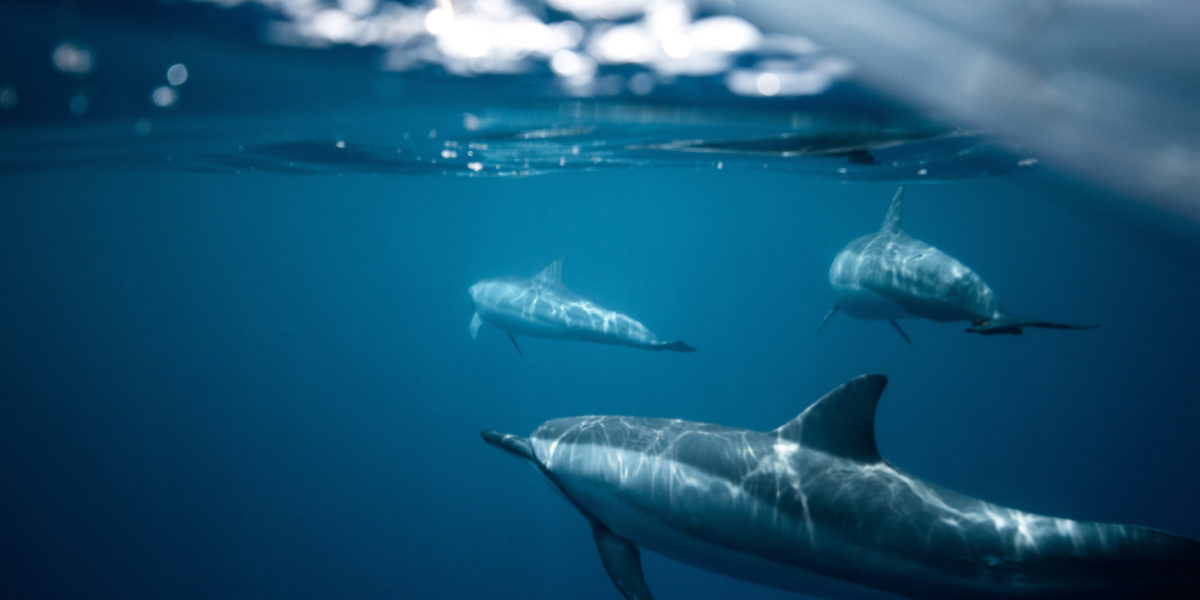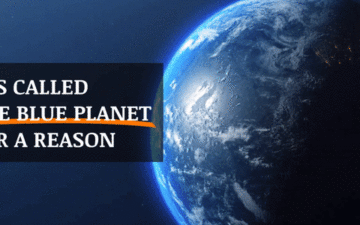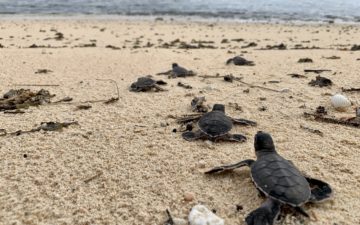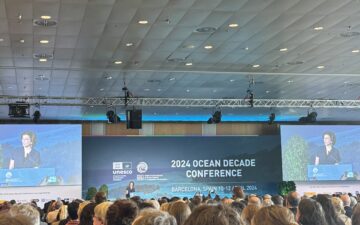Capitol Hill Ocean Week 2022 (CHOW), held from June 7th to 9th, was themed “Sea: The Future.”
Capitol Hill Ocean Week is an annual conference organized by the National Marine Sanctuaries Foundation first held in 2001. Kris Sarri, CEO and President of the National Marine Sanctuary Foundation, welcomed participants back in person for the first time in two years, while also offering an accessible virtual option. Tribal Chairman, Francis Gray, opened with a traditional Piscataway blessing as the conference was being held on their ancestral homelands.
Celebrating 50 years of ocean and coastal conservation and protection, the first panel of the conference discussed the wave of United States’ legislation that occurred in 1972 highlighting current challenges to continuing conservation under the Marine Mammal Protection Act, Coastal Zone Management Act, and Marine Protection, Research and Sanctuaries Act. The next panel, Food from the Sea, addressed the importance of blue foods (foods derived from aquatic animals, plants, or algae), indigenous rights to food security, and how to implement these blue foods into policy decisions globally.
The last session of the first day was on clean, renewable energy in the form of offshore wind and how the United States may be able to catch up to the success of European countries by utilizing unique floating technology. Participants also had the opportunity to attend a variety of virtual breakout sessions, for example, one session that was attended called upon aquariums to use their influence in the community, and among younger audiences, to raise awareness and educate on ocean conservation.
The second day began with NOAA announcing that the designation of the Hudson Canyon national marine sanctuary and the acceptance of the nomination of Alaĝum Kanuux̂ from the Aleut Community of St. Paul Island (ACSPI) for consideration as a national marine sanctuary. The first two panels of the day emphasized bringing western and indigenous knowledge together, along with addressing how to promote indigenous community engagement and independence to manage their own coastal ecosystems.
The Underwater Industrial Revolution panel discussed promoting the blue economy while achieving cooperation from the government, indigenous communities, students, businesses, and more. The last two panels of the day looked forward to the America the Beautiful Initiative and how certain statutes, like the MMPA, can be evolved to be more effective in the present day. Throughout the day, virtual breakout sessions continued to address an array of topics like new technology for preventing North Atlantic Right Whale boat strikes and how to advance diversity, inclusion, and justice in marine conservation.
Capitol Hill Ocean Week was a great opportunity for those in the ocean community to get together in person for the first time in two years.
It provided participants with the ability to network and engage with ocean experts and knowledgeable professionals working in ocean conservation. A significant emphasis was placed on the need for collaboration and diversity when looking forward to ocean conservation in 2022 and beyond.
Some novel legal and policy suggestions presented by panelists were policies that support rights to a healthy ecosystem at the state level, recognizing the ocean as a living being with inherent rights, and holding companies accountable regarding their impacts on climate with the SEC proposed rulemaking on disclosures. Nell Minow recommended that any participant interested look to the ValueEdge Advisors website on how to file a comment with the SEC regarding climate change disclosures. Please visit their website to learn more about the SEC and for updates on the rulemaking process.
Nearly all panels can be tied back to The Ocean Foundation’s initiatives and other project work.
These address Blue Resilience, Ocean Acidification, the Sustainable Blue Economy, and combating marine plastic pollution through redesign as ways to tackle the complex threats to our oceans that were addressed during CHOW 2022. Looking forward, The Ocean Foundation’s summer legal intern, Danielle Jolie, is working on a new project regarding Arctic Ocean conservation.
Climate change is resulting in alarming changes to the Arctic Ocean like loss of sea ice, increase in invasive species, and ocean acidification. If effective international and multi-jurisdictional conservation measures are not taken, then the Arctic marine ecosystems will be irreparably harmed. This upcoming paper will address ecosystem-based management of the Arctic that ties in Climate Change, plastic pollution, UN Decade for Ocean Science for Sustainable Development, and marine spatial planning that includes setting aside marine protected areas for natural and cultural heritage (UCH). For more information on The Ocean Foundation’s initiatives, please visit oceanfdn.org/initiatives.
Click here for more information on Capitol Hill Ocean Week 2022. All sessions were recorded and are available for free on CHOW’s website.







